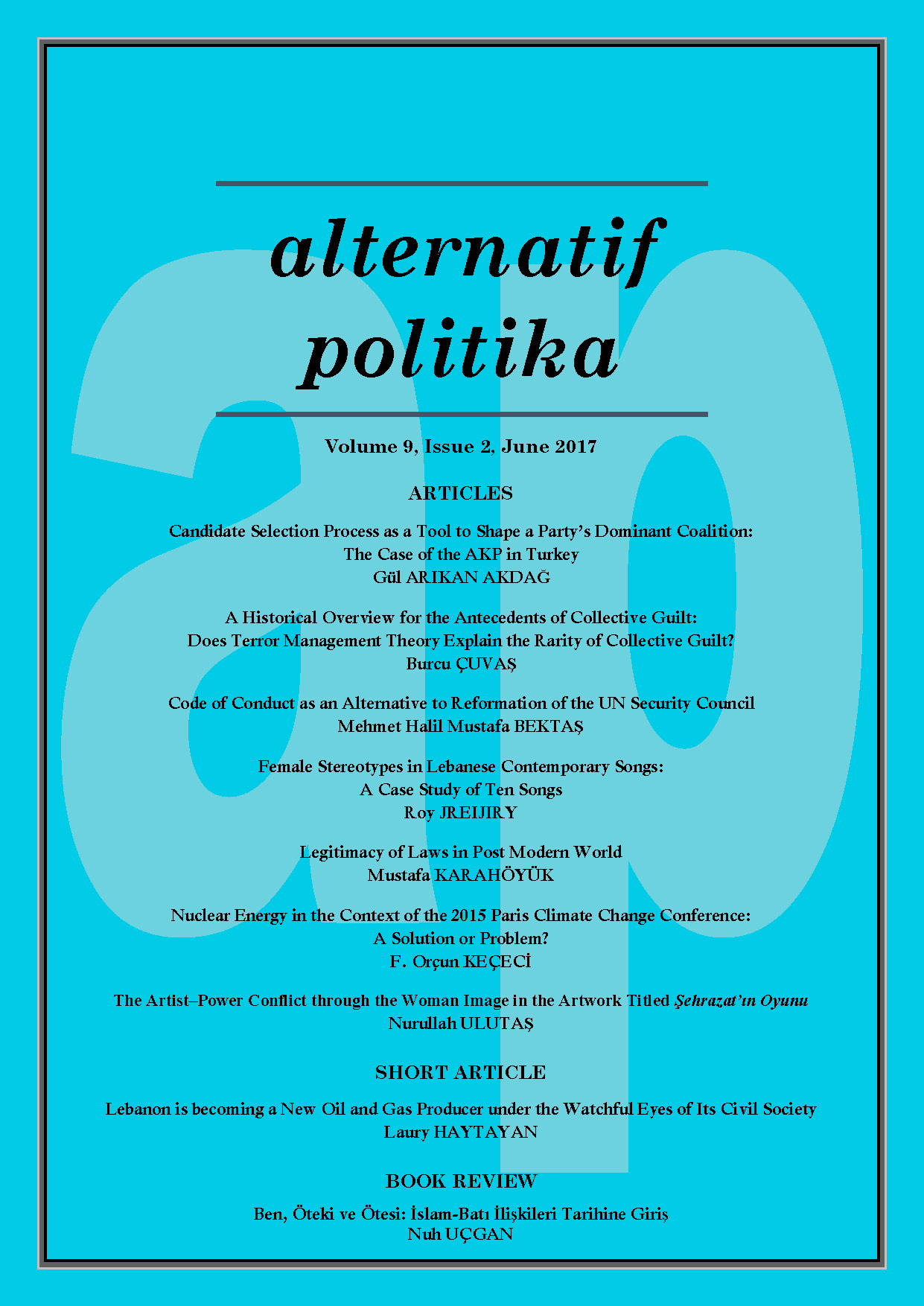CODE OF CONDUCT AS AN ALTERNATIVE TO REFORMATION OF THE UN SECURITY COUNCIL
CODE OF CONDUCT AS AN ALTERNATIVE TO REFORMATION OF THE UN SECURITY COUNCIL
Author(s): Mehmet H. M. BektaşSubject(s): Law, Constitution, Jurisprudence, International Law
Published by: Rasim Özgür DÖNMEZ
Keywords: UN Security Council; Code of Conduct for Veto Power; Responsibility to Protect (R2P); Mass Atrocity Crimes; International Peace and Security;
Summary/Abstract: The United Nations Security Council’s (SC) intermittent failure to perform its main duty of maintaining international peace and security has led to a longstanding debate about its reform. The ongoing Syrian crisis has resulted in a significant number of casualties, and has cost the international community heavily. The SC has thus become the subject both of severe criticism and of calls to take action. The inertia that results from an insistence on the use of the veto power has stimulated politicians to develop alternative methods. In this regard, some argue that there must be a Code of Conduct for the Council in order to enable it to react in cases of genocide, crimes against humanity and war crimes. Proponents of a Code of Conduct for the SC have naturally directed their attention to the veto power, the main suggestion being that it must be restricted in these extreme circumstances. Three main initiatives have consequently been developed and have received a considerable degree of support from states. Yet their deficiencies, including a specific procedural trigger and a process by which an alternative course of action could be initiated should one or more of the permanent five Council members (P5) refuse to refrain from using their veto power, have largely been overlooked. The current proposal aims to examine these initiatives and make suggestions to remedy these shortcomings. It first outlines previous efforts to reform the Council, then examines the suggested Code of Conduct, and finally proposes a new Code of Conduct and explains why a procedural trigger and a backup procedure must be provided. To the best of the author’s knowledge, there is no academic work on the Code of Conduct for the Council; there are only a few comments by politicians. This study will therefore make a contribution to the literature.
Journal: Alternatif Politika
- Issue Year: 9/2017
- Issue No: 2
- Page Range: 192-213
- Page Count: 22
- Language: English

